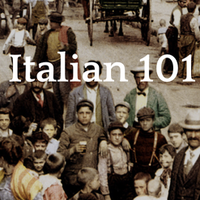1.2 Extended Reading for Mini Story - Il portafoglio
erweiterte|Lesen|für||||
extended|reading|for|||the|wallet
拡張された|リーディング|のための||||財布
Estendida||||||
1.2 Erweiterte Lektüre für Mini Story - Das Portfolio
1.2 Εκτεταμένη ανάγνωση για το Mini Story - Το χαρτοφυλάκιο
1.2 Extended Reading for Mini Story - The wallet
1.2 Lectura ampliada para el minicuento - La cartera
1.2 Lecture approfondie de la mini-histoire - Le portfolio
1.2 ミニ・ストーリーのための拡大読書 - ポートフォリオ
1.2 Meer lezen voor het miniverhaal - De portfolio
1.2 Leitura alargada para o mini-conto - O portefólio
1.2 Mini Öykü için Genişletilmiş Okuma - Portföy
C'è una ragazza.
there is|a|girl
há|uma|menina
There is a girl.
Det er en jente.
Há uma rapariga.
Bir kız var.
Si chiama Janet.
||Janet
herself|her name|Janet
|se chama|
Her name is Janet.
O seu nome é Janet.
Janet è statunitense.
||amerikanisch
Janet|she is|American
ジャネット||アメリカ人
||americana
Janet is from the United States.
Janet er fra USA.
Janet é natural dos Estados Unidos.
Janet è triste perché non ha il libro di italiano.
Janet||sad|because|not|she has|the|book|of|Italian
||悲しい|||||||
Janet|||porque|não||o|livro||italiano
Janet is sad because she doesn't have an Italian book.
Janet üzgün çünkü İtalyanca kitabı yok.
Janet è in classe e aspetta la lezione.
Janet|she is|in|class|and|she waits|the|lesson
|||||待っている||
|está|na|sala de aula||||
Janet is in the classroom waiting for the lesson.
Janet ama il cinema.
|||Film
|loves||cinema
|愛している||映画
Janet liebt Kino.
Janet loves cinema.
Janet sinemayı sever.
Janet studia l'italiano perché ama il cinema.
||||||Film
|she studies|Italian||she loves||cinema
||||愛している||
Janet studies Italian because she loves cinema.
Janet étudie l'italien parce qu'elle aime le cinéma.
Janet İtalyanca okuyor çünkü sinemayı seviyor.
Ma non ha il libro di testo.
but|not|she has|the|book|of|text
But he doesn't have the textbook.
Ama ders kitabına sahip değil.
C'è un ragazzo.
there is|a|
||男の子
There is a boy.
Si chiama Paulo Emilio.
himself|his name is|Paulo|Emilio
||パウロ|
His name is Paulo Emilio.
Paulo Emilio è brasiliano.
|||Brazilian
|エミリオ||
Paulo Emilio is Brazilian.
Emilio si siede vicino a Janet.
||setzt sich|||
Emilio|himself|sits|near|to|
||座る|近くに||
Emilio sits down next to Janet.
Emilio s'assoit à côté de Janet.
Emilio, Janet'in yanına oturur.
Emilio vede che Janet è triste.
Emilio|he sees|that|Janet||sad
エミリオ||こと|ジャネット||悲しい
Emilio sees that Janet is sad.
Emilio voit que Janet est triste.
Emilio, Janet'in üzgün olduğunu görür.
Emilio chiede a Janet: “Perché sei triste?”.
Emilio|asks|to|Janet|why|you are|sad
|尋ねる|||||悲しい
|pergunta||||está|
Emilio fragt Janet: "Warum bist du traurig?"
Emilio asks Janet: "Why are you sad?".
Emilio demande à Janet : "Pourquoi es-tu triste ?".
E Janet gli risponde: “Perché non ho il libro di italiano.
and||to him|she responds|because|not|I have||||
|ジャネット||答える|なぜ|ない|持っている||本||イタリア語
Und Janet antwortet: „Weil ich kein italienisches Buch habe.
And Janet replies: “Because I don't have an Italian book.
Et Janet répond : « Parce que je n'ai pas de livre italien.
Ve Janet cevaplıyor: "Çünkü İtalyanca kitabım yok.
Ho perso il portafoglio e non ho soldi per il libro.”
|verloren|||||||||
I have|lost|the|wallet|and|not|I have|money|for|the|book
|失くした||財布||ない||お金|||
Ich habe meine Brieftasche verloren und ich habe kein Geld für das Buch. "
I lost my wallet and I have no money for the book. "
J'ai perdu mon portefeuille et je n'ai pas d'argent pour le livre."
Emilio ha il libro.
|he has||
Emilio hat das Buch.
Emilio has the book.
Emilio condivide il libro con Janet.
|teilt||||
|shares|||with|Janet
|共有する||||
|compartilha||||
Emilio shares the book with Janet.
Emilio dzieli się książką z Janet.
Emilio kitabı Janet ile paylaşır.
Janet è felice.
|she is|happy
Janet is happy.
Paulo Emilio ama lo sport.
||he loves|it|sport
||愛している||スポーツ
Paulo||ama||esporte
Paulo Emilio loves sports.
Paulo Emilio sporu sever.
Ama il beach volley, la pallavolo e il calcio.
||Beach|Volleyball||Volleyball|||
he loves|the|beach|beach volleyball|the|volleyball|and|the|soccer
好き||ビーチ|バレー||バレーボール|||
|o|||||||
Er liebt Beachvolleyball, Volleyball und Fußball.
He loves beach volleyball, volleyball and football.
Il aime le beach-volley, le volley-ball et le football.
Plaj voleybolu, voleybol ve futbolu seviyor.
Paulo Emilio studia l'italiano perché ama lo sport.
Paulo|Emilio|he studies|Italian|because|he loves|it|sport
|||||愛している||スポーツ
Paulo Emilio lernt Italienisch, weil er Sport liebt.
Paulo Emilio studies Italian because he loves sport.
Janet e Paulo Emilio diventano amici.
||||werden|
Janet|and|Paulo|Emilio|become|friends
||||なる|
Janet and Paulo Emilio become friends.
Janet ve Paulo Emilio arkadaş olur.
C'è una ragazza.
there is|a|
There is a girl.
Si chiama Ingrid.
|her name is|Ingrid
|名前は|
|se chama|
Her name is Ingrid.
Ingrid è tedesca.
Ingrid|she is|German
||ドイツ人
Ingrid||
Ingrid is German.
Ingrid ama l'arte.
||die Kunst
Ingrid|she loves|the art
||芸術
Ingrid loves art.
Ingrid studia l'italiano perché ama l'arte.
|she studies|Italian|||the art
||||愛している|芸術
Ingrid studies Italian because she loves art.
Ingrid va a lezione e trova un portafoglio.
|she goes|to|lesson||she finds|a|wallet
|||||||財布
Ingrid goes to class and finds a wallet.
Entra in classe e dice agli studenti: “Ho trovato un portafoglio!”
|||||den (Plural)|||||
Enter||class|and|he says|to the|students|I have|found||
入る|||||その|||||財布
||||||||encontrado||
He enters the classroom and tells the students: "I found a wallet!"
Il entre dans la classe et dit aux élèves : « J'ai trouvé un portefeuille !
Sınıfa girer ve öğrencilere: "Bir cüzdan buldum!"
Ingrid mostra il portafoglio.
|shows||wallet
|見せる||財布
Ingrid shows her wallet.
Ingrid cüzdanını gösterir.
Janet dice: “È mio!
|she says|it is|mine
Janet sagt: „Es ist meins!
Janet says, “It's mine!
Janet, “Benim!
Grazie mille!
thank you|a thousand
|ありがとう
Thanks a lot!
Oh, sono tanto felice!”
oh|I am|so|happy
|estou||
Oh, I'm so happy! "
Oh, çok mutluyum! "
Ingrid dà a Janet il suo portafoglio.
Ingrid|she gives|||the|her|
|あげる|||||財布
Ingrid gives Janet her wallet.
Janet ha il suo portafoglio.
Janet|she has|the|her|wallet
||||財布
Janet has her wallet.
Janet'in cüzdanı var.
Janet è molto felice.
Janet||very|
|||幸せ
||muito|
Janet is very happy.

